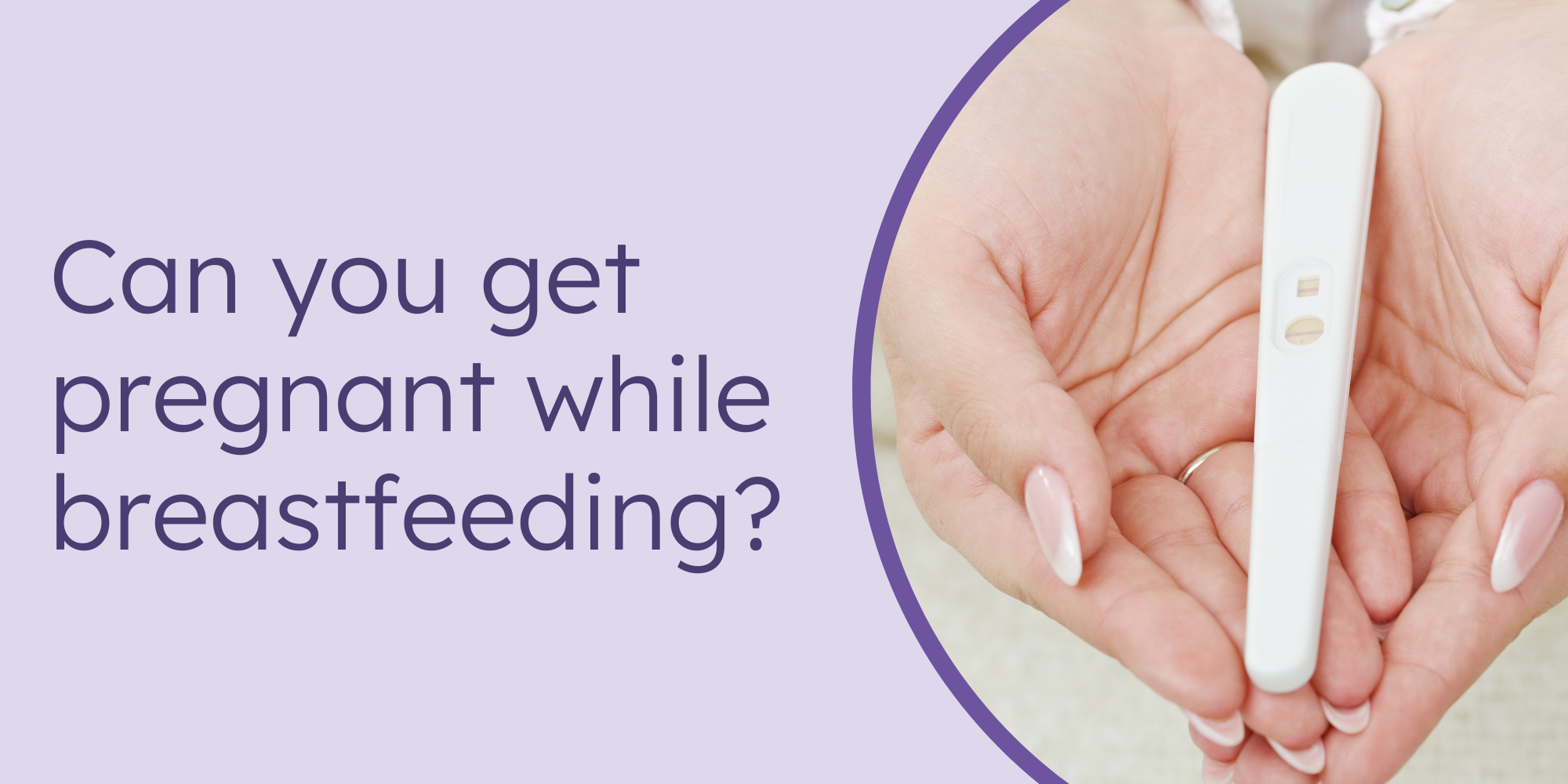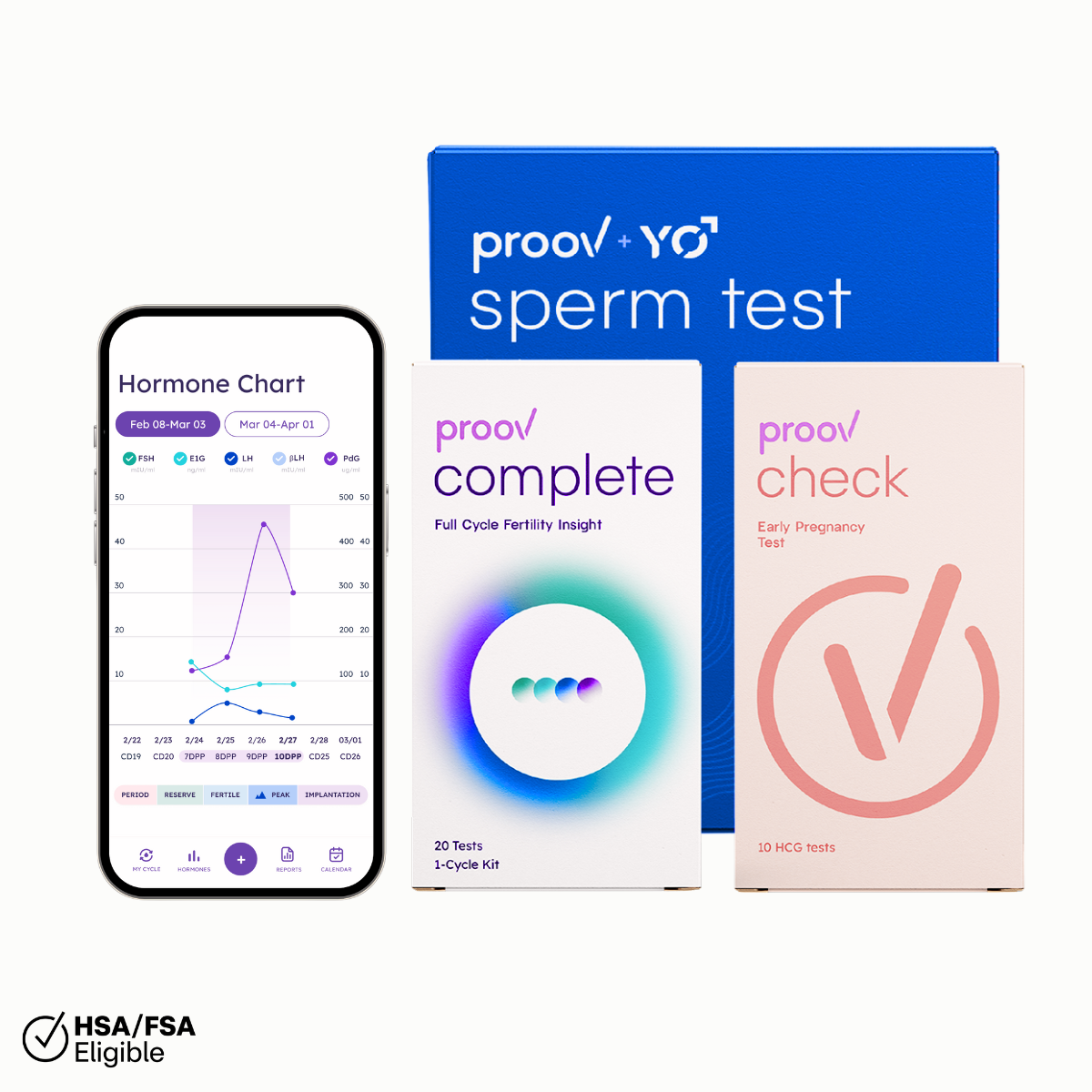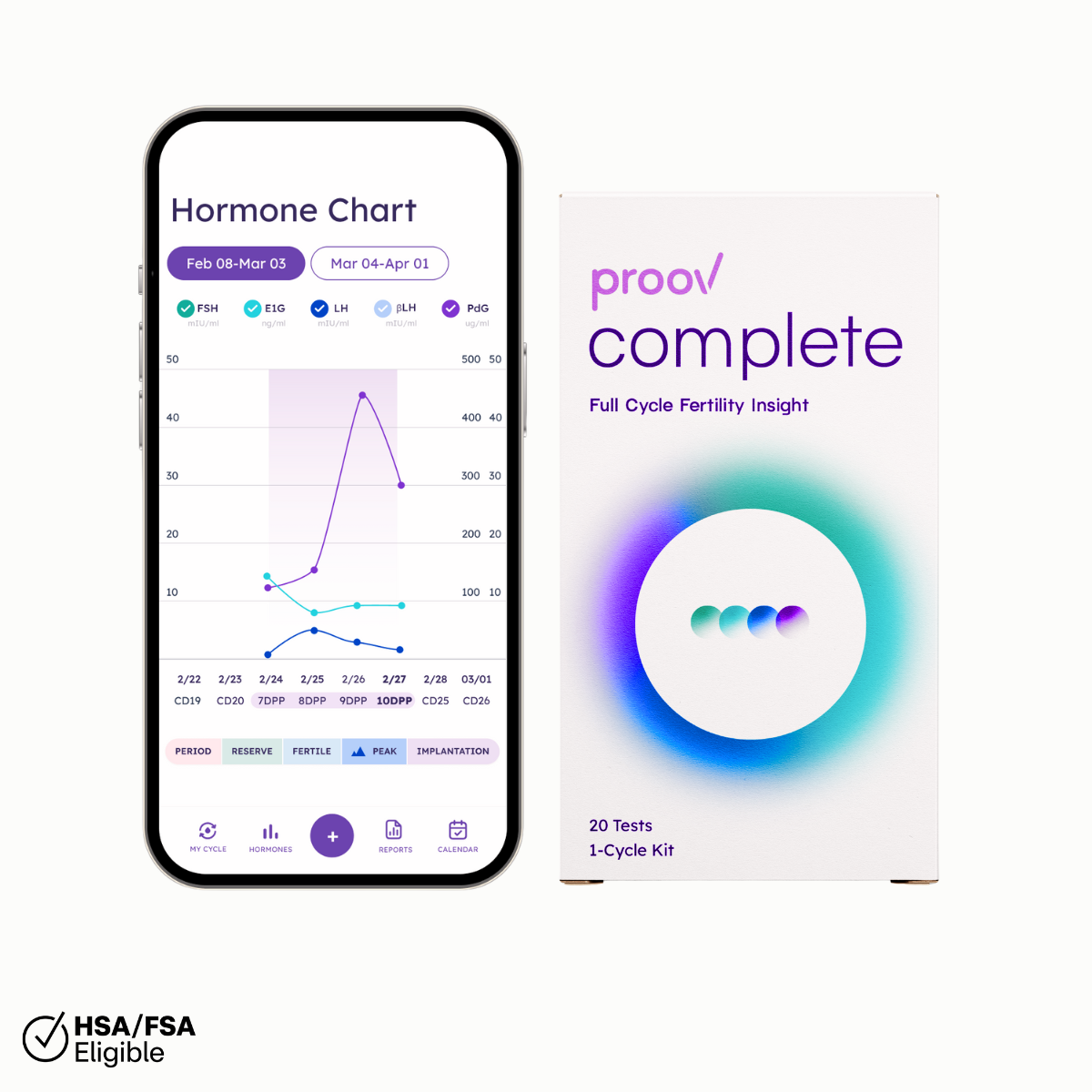
Congratulations! You’re a new mother and you want to get a handle on your fertility while nursing your little one. Breastfeeding is a hormonal process and we here at Proov are all about hormones so you’ve come to the right place!
Breastfeeding, a.k.a lactation, is well-established as good for new mothers and good for babies. Breastfed babies have lower risk of asthma, obesity, type 1 diabetes, ear infections, and a few other conditions you can read more about here.
Bonus: New moms who breastfeed show lower risk of ovarian and breast cancer, type 2 diabetes and high blood pressure. These are great reasons to try to stick with nursing for at least 6 months.
The first year of life with a new baby – breastfeeding or not – is full of changes that impact a couple’s family building goals. It’s not uncommon for women and couples to start thinking about family planning after the initial bleeding after birth (lochia) has subsided and intercourse resumes.
Let’s dispel any misconceptions about fertility and breastfeeding during this exciting time.

Can you get pregnant while breastfeeding?
Yes! Conception and pregnancy are absolutely possible during lactation even if you have not had bleeding that you think is your period. This is because ovulation is what makes conception and pregnancy possible, and ovulation occurs a few weeks before menstruation.
Can I get pregnant if I get my period while breastfeeding?
Yes, bleeding that occurs during breastfeeding can occur for a number of reasons, four to be exact. Not all bleeding is a “period” as in true menstruation.
Before you assure yourself that you’ve returned to regular cycles after giving birth, please know that you can only call it true menstruation if you ovulated about two weeks prior to the bleeding.
True menstruation also has a characteristic “crescendo-decrescendo” rising and falling action in the intensity of flow. If you know you ovulated, and your bleeding has a pattern of flow that fits with true menstruation, then yes, you can get pregnant even while breastfeeding. Bleeding is one possible sign that you have returned to fertility but it’s not foolproof.
If you want to double check if you’re ovulating, you can use a PdG test, like Proov Confirm!
How do some mothers use breastfeeding as birth control?
Mothers throughout history have used breastfeeding to space their children or temporarily avoid pregnancy to ensure that the nursling gets full attention and access to the mother’s valuable time and nutrient stores.This natural method of fertility regulation didn’t get much research or attention or even a formal name until the 1970s.
Then it was dubbed the “ecological method” of family planning because of the symbiotic relationship between the mother and the baby. Ecological means mama and babe function as a unit or system if you will.
Nowadays, “breastfeeding as birth control” is called lactational amenorrhea method or LAM. Amenorrhea means lack of menstruation, so lactational amenorrhea is a lack of menstruation due to suppression of ovulation through breastfeeding. How exactly does LAM work?
In a word, prolactin.
Prolactin is the hormone that tells a new mother’s breasts to make milk in response to nipple stimulation, i.e. baby's sucking. With regular sucking, prolactin levels will remain high causing ovulation to be suppressed.
Prolactin may also inhibit ovulation indirectly by down regulating the release of another hormone called gonadotropin releasing hormone (GnRH). Less GnRH means less follicle stimulating hormone (FSH), and less FSH means less signaling to the follicles in the ovaries to grow and get an egg ready for release (ovulation).
Lactational amenorrhea is a behavior-based method of family planning meaning what you (and your baby) do affects how it works. Behavior-based family planning also means your partner needs to be on board so be sure to discuss your thoughts on LAM with him.
(Oral birth control pills, condoms, and diaphragms are also behavior-based methods of family planning.)
LAM has been studied and shown to be up to 98% effective for avoiding pregnancy when the following behaviors occur:
- Since the birth, menstruation has not occurred, AND
- The baby is exclusively breastfeeding on demand throughout the day and night, AND
- The baby is less than 6 months old.

Given criteria #3, it’s wise to think ahead, check in with your partner, and decide on your family planning intentions and level of motivation for those intentions before your baby’s half-year birthday arrives.
Criteria #2 means no formula, water, or solid foods before 6 months. These are weaning behaviors that tend to decrease the baby’s need to suck for nourishment. Less sucking means less prolactin means less suppression of ovulation.
Breastfeeding, like pregnancy, can feel like a rite of passage for some women, a test of their “mothering abilities.” It’s not uncommon for feelings of stress, anxiety, guilt, and, of course, exhaustion to crop up. Be prepared by having open discussions about coping strategies with your support people ahead of time.
For criteria #1, repeating for good measure, not all bleeding is menstruation. Ovulation has to occur first in order for the bleeding to qualify as menstruation, so we always recommend confirming whether or not you’re ovulating.
If I do get pregnant, should I stop breastfeeding?
Not necessarily.
According to the American Pregnancy Association, if you are having a healthy pregnancy and want to continue breastfeeding while pregnant, go for it! Breastfeeding can cause mild uterine contractions but a healthy pregnancy can handle these contractions without going into preterm labor.
A small amount of pregnancy hormones pass into your milk, but these hormones pose no risk to your nursing child. Anecdotally, many nurslings self-wean when mama is pregnant so you may end up stopping through no effort of your own.













